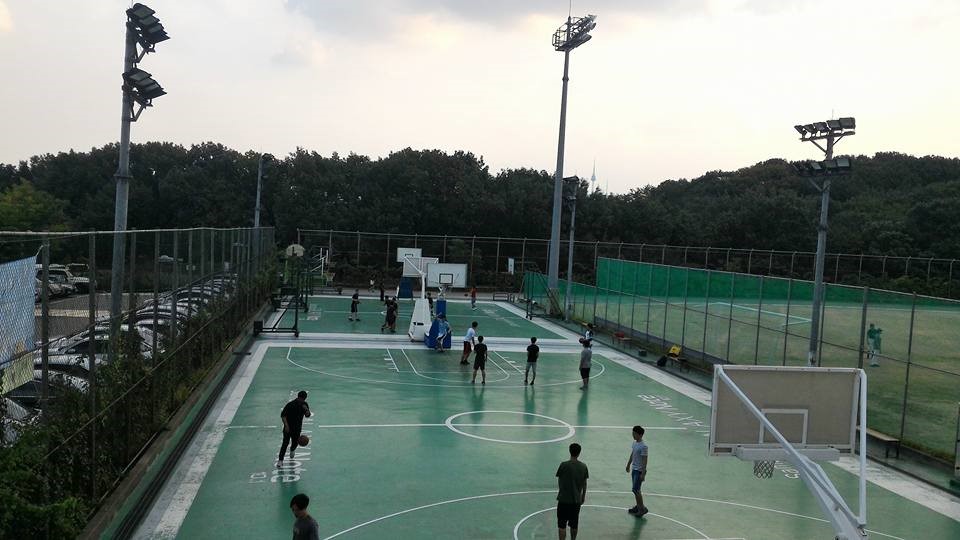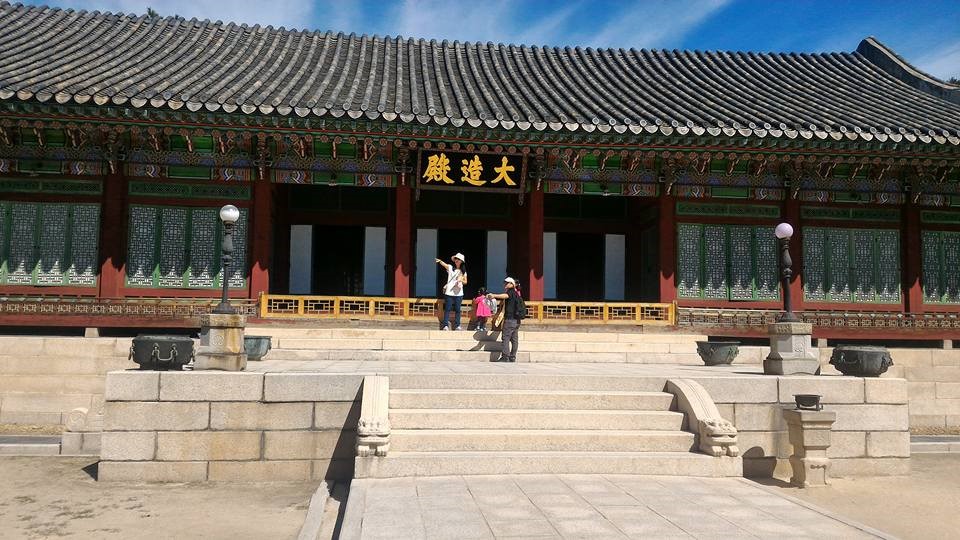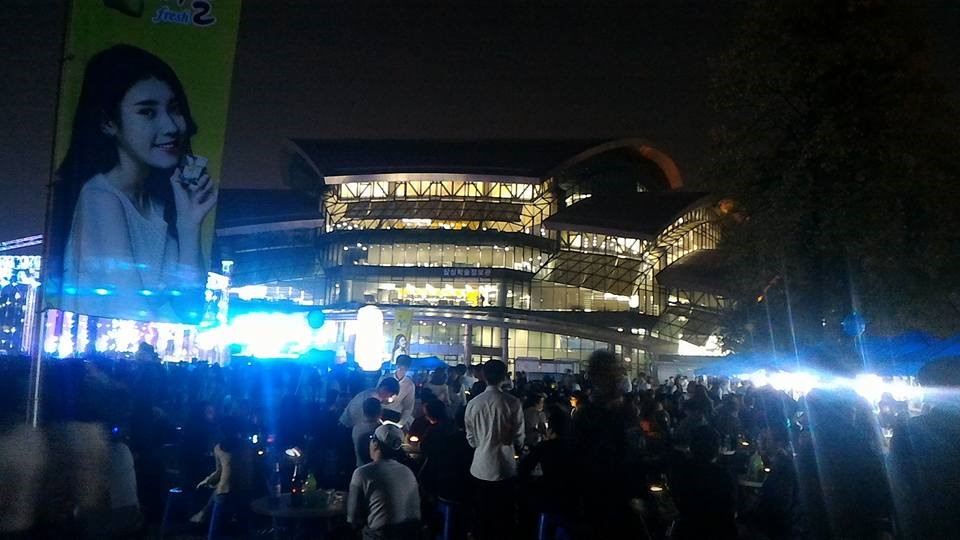Sungkyunkwan University (Seoul Humanities & Social Sciences campus)
Sungkyunkwan University was founded at the beginning of the Joseon Dynasty in 1398. It was the highest national educational institute in the early years of the Joseon Dynasty in Korea. As the oldest university in East Asia, it has fostered leaders of Korean society for over 600 years. The Humanities & Social Sciences is situated on a hill overlooking the old Sungkyunkwan Confucian institute grounds, and there are many historical sites such as the Jongmyo Royal Shrine and Changdeokgung within walking distance in the heart of Seoul. As the university expanded along with the city, the science programs were moved to a new campus in Suwon in 1978, about 45km away from Seoul.
School’s main website | International/Exchange Student Website
GPA Requirement:
3.3/5.0
For exchange students, the GPA required is dependent on your home university
Language of Instruction:
Korean, English (30-35% of courses each semester will be taught in English)
Flying Chalks’ tip: Do note that even for classes indicated as being taught in English, professors may choose to teach in Korean instead for various reasons (own preference, cater to the English standards of Korean students etc). It is advisable to check out the classes at the start of the semester, and plan more course options as a backup plan.
Courses:
Undergraduate exchange students are allowed to take up to 18 credits at SKKU while postgraduate exchange students are allowed up to 9 (15 for MBA). The catalogue of courses available for each semester at both the Seoul and Suwon campuses can be found here.
Language course:
SKKU provides international students with two types of Korean Language Courses run by the Sungkyun Language Institute: RKP (Regular Korean Program) and RKP for Exchange Students. The former is usually for students coming to SKKU to study Korean full-time, while regular exchange students will take the latter. There are a few levels to cater to different language standards and it is not compulsory to take the Korean language course.
http://www.skku.edu/eng_home/global/edu/korean_1.jsp
Course registration process:
Exchange students have an exclusive registration period that is conducted before the registration period for local students takes place. Emails with detailed instructions on how to use the GLS registration portal will be sent by the Office of International Affairs.
Flying Chalks’ tip: As Korean websites tend to require certain plug-ins not used in other parts of the world, it would be good to use Internet Explorer which supports these plug-ins. Browsers like Google Chrome or Firefox may not support the plug-ins needed for the websites to run.
If you are unable to register for any of the courses online, you can obtain a physical copy of the Course Registration form from the International Office, attend your desired classes during the first week of school and obtain approval from the professors in charge. This will definitely depend on whether the class enrolment is already full but usually, professors will be more understanding towards exchange students. As with all things, always have a back-up plan!
Attendance policy:
Classes in Korean universities are rather strict on tardiness. Attendance will be taken at the start of the classes. Some professors may penalise latecomers, so do try to be punctual!
Campus map:
SKKU's campus map can be found here!
Selected facilities:
- The full list of facilities can be found here.
- Business building: Some classes may require textbooks which you can buy from the book store at the Business building. The Business building is the main place where shops on campus are concentrated at. There is a café, optician shop, mobile services shop, SKKU gift shop where you can get all your SKKU merchandise, hair salon, travel agency, florist and convenience store at B3 of the building.
- Printing: There are printing machines scattered around the campus that students can use to print notes. You have to deposit money into your school account after logging in on the machine, and use that amount to pay for printing. Printing services are also available at B3 of the Business building and the Central Library.
- Gym: Located at the Business building, gym memberships will open up every month and close when they are fully taken up.
- Outdoor basketball courts/soccer field/baseball field:

Food on campus:
- The full list of facilities can be found here.
Students mostly frequent the dining hall at the B2 Business building, where there are a few varieties of food to choose from, a mini cafe and a Mom’s Touch fast food place. The other dining hall students like to go to is the one at B1 of the 600th Anniversary Building. There are one or two take-out café kiosks in some corners of the campus. It is also possible to walk out to the shops located just outside the school walls for lunch in between lessons. There are many great options that cater to student budgets. Do go around trying them all!
Campus transportation:
There is a shuttle bus from Hyehwa station that operates from morning onwards and costs 300won per trip. It stops beside the basketball court on campus. There are also free shuttle buses that operate between the two SKKU campuses.
Campus life at the Humanities and Social Sciences campus of SKKU is vibrant and exciting. With the combination of the old Sungkyunkwan grounds located near the front gate and the modern buildings of the present campus uphill, the Seoul campus offers a great mix of modernity and history. There are endless things to see, do and eat in the surrounding Daehangno area.
Orientation program:
An orientation day will be organised for exchange students attending both the Seoul and Suwon campuses before term starts. The orientation will be held at the Seoul campus where students will be split into groups which their HI Club buddies are in (if they signed up for the buddy system).
The orientation consists of welcome talks (with the mandatory SKKU welcome video featuring alumnus Song Joong Ki) followed by a tour of the Seoul campus which may not be as relevant to those studying at Suwon as they will not be spending their time here. After the orientation ends, there will be several welcome parties at nearby pubs which students can buy tickets to. The parties are designated for Seoul and Suwon students separately but anyone is free to buy a ticket to whichever party they wish to attend.
Buddy program:
SKKU will ask students if they would like to sign up for the optional buddy programme when the acceptance package is sent out. This programme is facilitated by the HI Club (Help & Information Club), a student club that works with the Office of International Affairs to provide assistance to exchange students. Each HI Club member will be assigned several buddies and form a group with other HI Club members and their buddies. These groups may have their own outings and gatherings, like picnics by the Han River.
The HI Club organises events like the orientation program, outings to places of interest (e.g. Korean Folk Village) and also select MAPLE buddies. MAPLE buddies are students who are interested in interacting with foreign students and helping exchange students. They are selected by the HI Club members and will join in the HI Club events and outings.
Student clubs:
There are many different student clubs available to join at the Humanities and Social Sciences campus. There are a wide variety of clubs catering to different interests, from different dance genres to sports and religious clubs. Different clubs may operate separately at the two campuses so it is advisable to check online here (http://www.skku.edu/eng_home/campus/activities/stu_organ_06.jsp). Each club has their own room located in the Student Centre. Students interested in joining any of the clubs can approach the clubs directly at their rooms or ask their HI Club buddies (if available) to help them find out more information.
University events:
- ESKARA Festival
As Korean societal expectations are very pressurising and stressful, many students see university as the time to play hard and have fun. University festivals that are held every semester are like huge parties, with concerts and food stalls run by student clubs. SKKU has its own ESKARA Festival where many singers and rappers will be invited to perform at. For the 2015 fall semester’s ESKARA festival, SKKU’s Seoul campus had more indie artistes like Urban Zakapa. The Suwon campus’s line-up is usually hip-hop. For the 2015 fall semester’s ESKARA, they had stars like 4 Minute, MFBTY and Leessang.
- Seokjeon Daeje
With its roots as the premier Confucian institute of higher education in the Joseon dynasty, SKKU continues to honour such traditions with a grand Confucian ceremony that takes place twice a year, in March and September. The Seokjeon Daeje is a two-hour ceremony held at Munmyo in the old Sungkyunkwan grounds. It consists of a formal ceremony, ceremonial sacrifice and a mass performance by dancers and musicians dressed in traditional robes. Anyone interested in Confucianism and how it has come to shape and define Korean society may want to attend this age-old ceremony to understand more about it.
Flying Chalks’ tip: It will be extremely beneficial if you are able to read and/or converse in Korean as the language barrier is rather high. You may find it challenging to enter the “inner circle” of Korean students and be lost in project group discussions if you do not even understand basic Korean phrases.
The Daehangno area around the Seoul campus has a lot of food options and plenty of bars or pubs to check out. It is a quieter alternative to the hustle of the Hongdae nightlife district. At the other exit of Hyehwa station (the nearest subway station), there is the theatre district where many plays and productions are held.
Hyehwa is within close proximity to the Insadong area, Dongdaemun and Myeongdong. It is pretty convenient to travel around Seoul from Hyehwa. The Seoul campus itself is situated on a hill which can get a bit steep as you travel upwards. The campus is beautiful in autumn as the leaves lining the roads change colour and the two historical gingko trees in the old Sungkyunkwan grounds are a sight to behold. Attractions nearby include Ihwa Mural Village, Naksan Park, Marronier Park as well as two of the “Five Grand Palaces”, Changdeokgung and Changgyeonggung.

Inside Changdeokgung
For food:
University areas often have many cheap places to eat, affordable entertainment options and good shopping in some areas.
Flying Chalks’ tip: If you can read Korean, you can try using the main search engine in Korea, Naver, to search for information. It will serve you much better in Korea than Google will. To look for recommended food places around, get a friend who can read Korean to translate or get a local to bring you around!
Flying Chalks’ recommendations:
- Miss Lee Café별다방미스리
Featured in popular reality show We Got Married (Seohyun+Yonghwa couple), Miss Lee Café has several branches around Korea and the Daehangno branch is located at the theatre district side, near the bingsu shop Sulbing. The café has a unique atmosphere thanks to its quirky décor. The menu offers dishes such as school-style lunch (kimchi, egg, luncheon meat, rice and seaweed soup) and different bingsu flavours.
- Café 205 Degrees (205도씨/205 dosshi; near Sungkyunkwan’s front gate)
Located at a small alley near the front gate of SKKU, this cosy café offers an excellent variety of coffee for caffeine aficionados and hearty Western-style brunch sets. The tiramisu here (about 7000 won) is also a must-try. Their brunch sets are light on oil and salt without sacrificing taste and flavour. Brunch sets include homemade yoghurt, fruit and soup. The French toast brunch set is excellent. Other items on the menu include paninis, sandwiches and other café food.
For nightlife and entertainment:
There are many pubs that open until late at night around the school gate area. Local students frequent these places after dinner for their second and third rounds of drinking. There are also noraebangs (karaoke joints) that operate until the wee hours of the day, so you can satisfy any karaoke urges at 3am easily.
There are many small theatres that showcase plays and performances in Korean at affordable prices. In addition, there is a CGV movie cinema near the subway station. Certain movie timings (early morning around 9am) may only cost 5000won a ticket.
Flying Chalks’ recommendation:
- Donghak 동학 東學
A Korean-style pub or jujeom (), Donghak offers a rustic environment reminiscent of old Korean watering holes coupled with delicious dishes that go well with the house-brewed makgeolli (rice wine). Customers can sit at tables on the ground level or sit on the floor in the basement level, where they call for service by hitting a small Korean drum. Donghak’s crowning glory is its house-brewed makgeolli, served the traditional way in a kettle and drunk with bowls.
The house brew nurungji (rice crust) flavour makgeolli is clean-tasting and far superior to the bottled varieties available at supermarkets and other drinking joints. Donghak also offers fruit flavoured makgeolli such as grape and pear which are also worth a try. The food selection ranges from mains to stews and their specialty jeon or pancakes. Rave-worthy dishes include kimchi with tofu (simple but elevated), braised spicy chicken stew (not spicy at all) and the various jeon flavours (original, kimchi, green onion etc). The jeon are crispy yet chewy and generous with the fillings, and a must-order to go along with the makgeolli.
Donghak is located in a small alley located along the stretch of pavement beside the main four-way junction. Follow the path with Daiso, McDonald’s and Pizza Hut and look out for a paper lantern marked with the Chinese characters at the mouth of the alley near Donghak’s wooden gate entrance.
For those looking for a nightlife and entertainment area that features a more international crowd, Itaewon will be the place for you!
For daily necessities and groceries:
Daiso at the main 4-way junction is where you can buy all your household necessities at affordable prices. Further down the junction towards Hyehwa Catholic Church, there is a Home Plus supermarket. There is a Lotte Mart right opposite the main gate. At both supermarkets, you can get everything from groceries and pastries to even electronics. However, you may find that Lotte Mart is a little more expensive compared to the former.
Past the SKKU campus, taking the path down into the neighbourhood, there is a small fruit store selling a wider variety of fruit at cheaper prices than most supermarkets. Fruits can be rather expensive in Korea hence finding cheap options is essential for those who eat fruit regularly.
Flying Chalks’ tip: In Korea, stores charge for plastic bags where the fee can be quite high in some! Hence, do bring along your own shopping bag or carrier to buy groceries.
For shopping:
Daehangno has shopping options around the subway area ranging from clothes to skincare stores. There is an Artbox stationery store near the subway that features cute stationery, as well as Redeye outlets which stock the latest in Korean fashion trends at wallet-friendly prices. Popular make-up and skincare brands like Etude House, Nature Republic and Clio are also available. Two subway stops away, Sungshin Women’s University station is an alternative to the more well-known Ewha district as a shopping area for women’s fashion and makeup.
Flying Chalks’ recommendation:
- “Express Bus Terminal” is a highly popular place amongst locals and foreigners alike for shopping. The underground shopping features hundreds of shops with products at affordable prices. Having said that, you can always bargain for better prices!
- Dongdaemun is another highly popular shopping haven where you can literally shop till dawn! For serious shoppers, it is near impossible to finish the entire shopping area even in one full day :O
The Humanities and Social Sciences campus of Sungkyunkwan University is served by subway via Hyehwa station (line 4), exit #4. There is also a shuttle bus stop near exit #1 that brings you to the campus grounds for about 300 won.
Getting from Incheon airport to SKKU (Seoul):
- Group Pickup Service
SKKU offers a group pickup service (no individuals) from Incheon Airport to the Seoul campus for a fee. Details can be found in the admission package sent to you upon acceptance.
- By Limousine Bus
The limousine bus offers a comfortable and relatively inexpensive ride to various places, including that of Seoul. Passengers can get information about its services and ticketing at the following ticket booths located outside the airport’s Arrival floor:
- Exit 4 and 9 (indoors)
- Exit 4, 6, 7, 8, 11, 13, and 9C (outdoors)
Directions: To get to the Humanities and Social Sciences campus, board bus 6011 from the counter near airport bus stop 5B, gate 6. The ticket costs 10,000 won a trip. Get off at Sungkyunkwan University station, which is about 90 minutes’ ride from the airport. The bus stop is near the 4-way junction, where Daiso, Starbucks and Tom N Toms are.
For more information, visit this website.
- By taxi
Taxi is by far the most convenient way of getting from the airport to the campus (especially when you have lots of luggage) but is also the most expensive. You can get a taxi outside the Arrival Hall of the airport.
Tell the taxi driver to go to Sungkyunkwan Dae-hak-kyo or SKKU. Do specify that it’s the Seoul campus/Daehangno.

